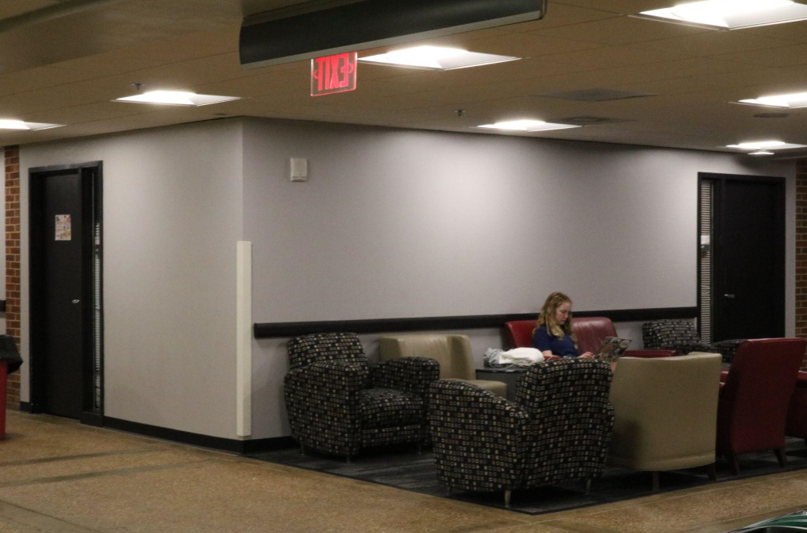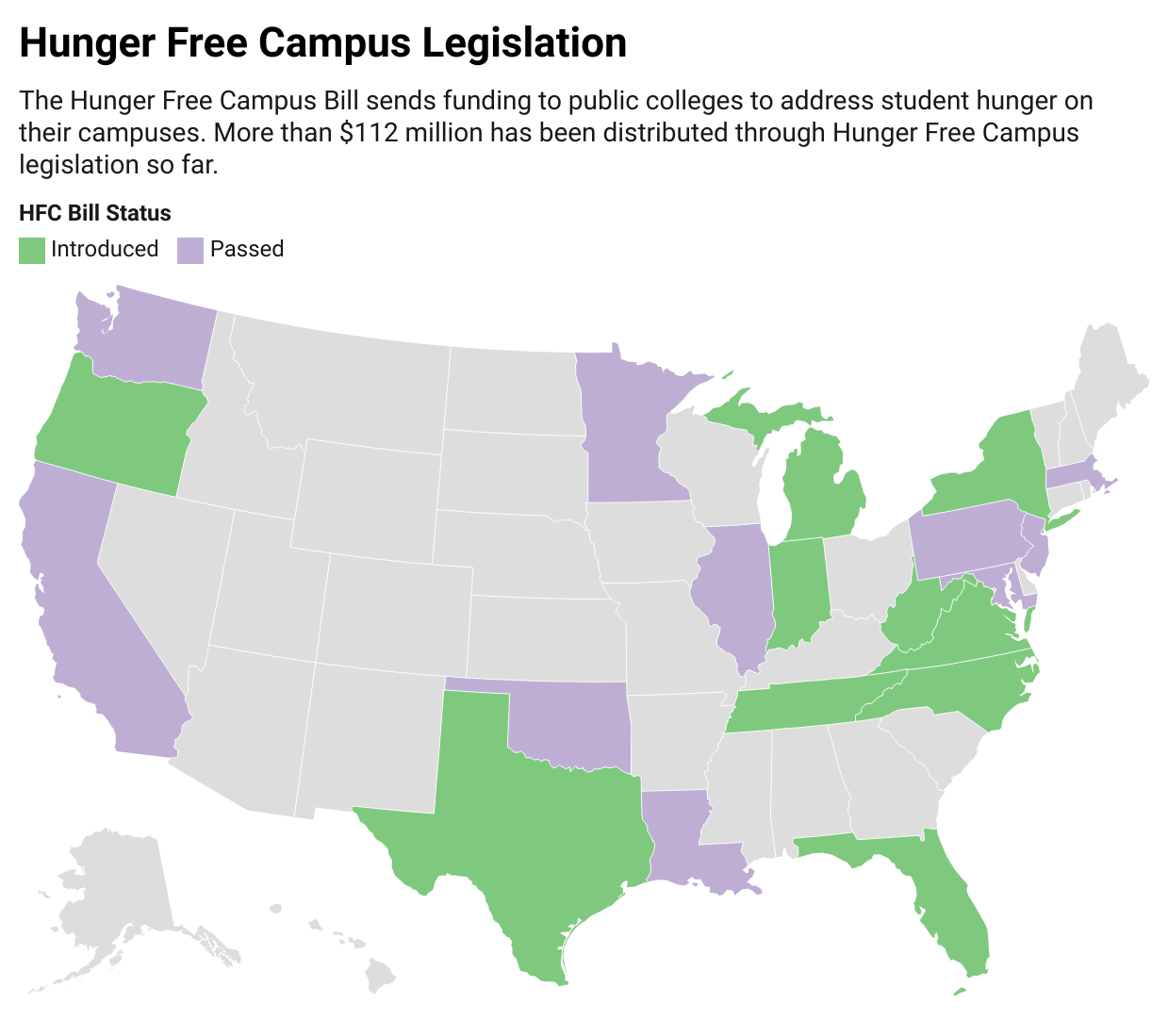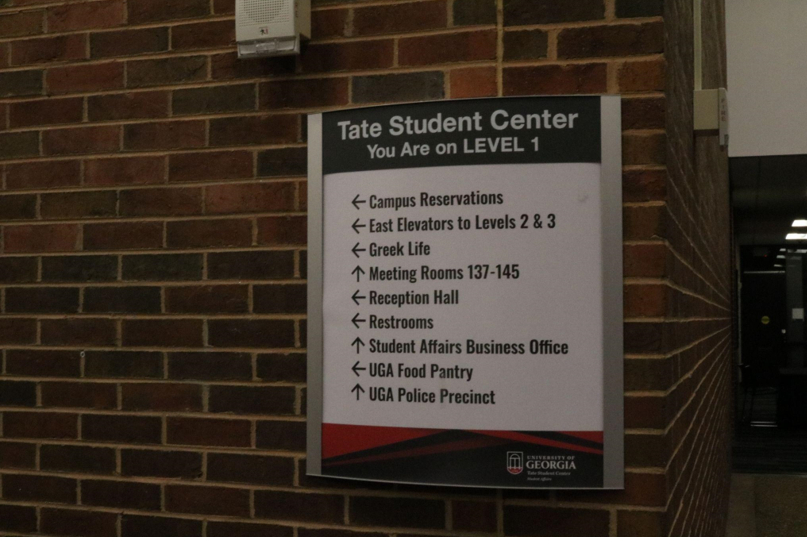Hundreds of cans and nonperishable food products line the shelves in a small room in the back corner of the Tate Student Center’s first floor. What people walking through the building might not realize is that inside that tiny room, workers are providing food to hungry University of Georgia students.
Kara Rex, the advisor to the Panhellenic Council, spends every Monday through Friday overseeing the daily operations of the UGA Food Pantry, a food pantry that provides students with food at no cost, according to the organization’s website.
When she accepted her position, Rex was unaware of the impact her work would have on the UGA campus.
“When I started my job in June of 2020… I witnessed campus partners come together to provide meal kits from the pantry to students who remained in Athens, but may not have had access to groceries due to COVID-19,” Rex said.
“Despite many challenges the world was facing, the pantry was able to fulfill their mission of assisting students in need,” Rex added.
Why It’s Newsworthy: On college campuses across the United States, more than 4 million students are food insecure, according to data released by the federal government.
What is Food Insecurity?
Food insecurity is defined as “the limited or uncertain availability of nutritionally adequate and safe foods, or limited or uncertain ability to acquire acceptable foods in socially acceptable ways,” according to the U.S. Department of Agriculture.
On college campuses across the United States, one in three college students were food insecure before the COVID-19 pandemic, with many believing that those numbers are now conservative. This means that more than 4 million students are food insecure, according to data released by the federal government.
Swipe Out Hunger, a nonprofit devoted to addressing hunger among college students, estimates more than 800 schools have food pantries, from regional universities to state universities like the University of Georgia (UGA).

Food Insecurity at UGA
According to a release written by Kirsten Brucker, a digital marketing assistant for UGA’s Department of Student Affairs, one in five UGA students experience hunger each day because of food insecurity.
The University of Georgia Panhellenic Council originally founded the UGA Food Pantry in the fall of 2011 to battle this. Although they sponsor it, volunteers from across the campus are able to come in to volunteer and receive services.
“I am continually amazed by the student body’s collective investment in serving the UGA community through the Student Food Pantry,” Rex said. “With the help of many volunteers, the pantry has increased their operating hours from 12 hours a week to 40 hours a week.”
Greek Organizations Lend a Hand
Many of UGA’s women’s fraternity and sorority members within the Panhellenic Council are committed to volunteering and combatting food insecurity they have experienced themselves or seen within the community.
Alpha Gamma Delta (AGD) is an international women’s fraternity founded in May 1904 with a philanthropic focus on fighting food insecurity. Every year, UGA’s Gamma Alpha chapter hosts their annual Alpha Gam Jam event every spring semester.
This year, the event will occur on March 27, 2024, from 5:00 p.m. to 7:00 p.m. and will feature live music from local Athens bands, food, raffles, and other activities on their front lawn.
“I went because my sorority has an external philanthropy credit for us to complete every semester,” said Je’Leah Laurenceau, a sophomore art major and Greek life member. “And, I also have a friend who is in AGD and she was someone that I really wanted to see. I did know this event was to fight food insecurity, and it was nice to know that I was contributing to that fight.”

UGA is one of several four-year colleges in Georgia that has resources to fight food insecurity. Other schools like Georgia State University, Georgia Southern University and the University of North Georgia all have food pantries that provide hygiene, non-perishable food items and other supplies to their students. Some even offer additional resources to faculty and staff.
Janai Wells is a senior majoring in journalism.









Show Comments (0)